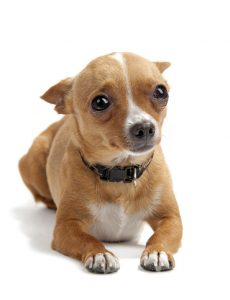We have all seen it in our dogs. The dog who bounces about when a visitor comes, barks when headed to the dog park, or whines when he sees a tennis ball. The dog who acts worried when he anticipates a bath, drags his feet to the vet, or gets stiff when he sees another dog. Your proper reaction to that anticipation will help reduce anxiety for both you and your dog while affirming your leadership role. More importantly, your response to your dog’s anticipation, before he follows through with action, will create less work for you and will receive more understanding from your dog.
First, you will have to decide if the anticipation is working for or against you. Anticipation of a treat, toy or ball is great when you are using those for rewards. We love this when training the dog to do most things. Your dog predicts he will get a treat, so he quickly sits down for his reward. It expects the ball to be launched and immediately retrieves the ball when it is thrown. On the other hand, a dog that anticipates a visitor’s attention or a neighborhood jaunt may lead to jumping on the visitor or zooming out the front door as soon as it is opened. Then you will need to decide how to respond to the anticipation.
 A dog that anticipates some sort of procedure at the vet clinic may need some rehab exercises so he can see things more positively. To do this, drive the dog to clinic, get out of the car, play tug, eat food, go for a walk and then go home. Repeat, repeat, repeat. Progress to walking inside, hand feeding bit-by-bit (whole meals if necessary), going back outside for a walk then going home. Vet staff are always willing to help dogs overcome anxiety, so have them hand a bit of food to your dog.
A dog that anticipates some sort of procedure at the vet clinic may need some rehab exercises so he can see things more positively. To do this, drive the dog to clinic, get out of the car, play tug, eat food, go for a walk and then go home. Repeat, repeat, repeat. Progress to walking inside, hand feeding bit-by-bit (whole meals if necessary), going back outside for a walk then going home. Vet staff are always willing to help dogs overcome anxiety, so have them hand a bit of food to your dog.
Note: the vet clinic is NOT the place to obedience train an anxious dog. Nor is it a place to force your anxious dog to behave around other dogs. This will only add to anticipation and anxiety.
When a dog anticipates a walk, the likelihood of him remaining calm while you put the leash on is low and the chances of him pulling are high. You would not want to encourage anticipation by asking him if he wants to go for a walk or by moving about quickly and joining in the excitement. You can reduce this type of anticipation by frequently, throughout the day, bringing out the leash putting it on the dog, then removing it and going about your business. If the dog delays his anticipation until you are outside the door, you can bring him back inside for a few minutes and remove the leash then put it on before going out again. Repeat as necessary until he is calm before proceeding with the walk.
Using valuable rewards can deflect a dog from anticipating a future event. When your dog anticipates a visitor’s arrival, step on his leash and generously toss bits of food on the floor, away from the visitor before he jumps on your guest. Do this consistently with each and every guest. When your dog anticipates running out an open door, tether him so that he can move freely outside and inside the door. Open door and throw several pieces of food behind him so his new anticipation will be running back inside instead of outside. If a dog has practiced many months or many years of anticipation it will take many repetitions to change this behavior. Be consistent and be patient.
 When you have found something that your dog really likes to do, and anticipates that action, you can use it as a reward for a training exercise. Instead of going outside and throwing the ball over and over again, have your dog sit or lie down before each toss. Better yet, use the ball toss as a reward for things your dog may be hesitant to do, like getting in the car or having his feet handled. Anticipation can really help train a fast, reliable recall. Have someone hold your dog back at the other side of the yard while you bounce the ball and, when he is just about screaming to get to you, call his name and give him the ball. Lock up some tasty food in a crate and let your dog spend several minutes on the outside anticipating eating the food. When you open the door, he will zoom right in.
When you have found something that your dog really likes to do, and anticipates that action, you can use it as a reward for a training exercise. Instead of going outside and throwing the ball over and over again, have your dog sit or lie down before each toss. Better yet, use the ball toss as a reward for things your dog may be hesitant to do, like getting in the car or having his feet handled. Anticipation can really help train a fast, reliable recall. Have someone hold your dog back at the other side of the yard while you bounce the ball and, when he is just about screaming to get to you, call his name and give him the ball. Lock up some tasty food in a crate and let your dog spend several minutes on the outside anticipating eating the food. When you open the door, he will zoom right in.
I hope this article has caused you to anticipate a better future with your dog. Please consult a certified dog trainer if you are in need of more guidance.
Janine Allen is a Certified Professional Dog Trainer and is the In-House Behaviorist at Village Park Animal Hospital. To set up a consultation, call 760-564-3833 or visit Janine’s website at JanineAllen.com.
Village Park Animal Hospital is located at 51-230 Eisenhower Dr. in La Quinta. Village Park Animal Hospital also offers grooming services for dogs and cats. (760) 564-3833 www.villageparkanimalhospital.com


